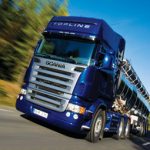Optare seizes the initiative

The future of busing looks bright as an array of new developments are destined for South African shores.
In the modern bus world, it is becoming increasingly difficult to draw the traditional distinction between chassis manufacturer and bodybuilder. While it has been common, but not universal, practice for prominent chassis brands to offer their own bodywork, and fully built integral (chassis-less) buses and coaches, since the period between the World Wars, recent developments have seen companies perceived as specialist coachbuilders moving increasingly into the arena of offering completely engineered vehicles, using bought-in driveline aggregates, to the marketplace.
A case in point is the Optare Group, which was originally founded in 1985 by a group of former employees of the historic North English coachbuilder, Charles H. Roe Limited, after that operation had been acquired, and subsequently terminated, by the erstwhile British Leyland. In 2000, the Blackburn-based company was bought by North American Bus Industries, whose primary business aim, as originally structured, was to supply the United States (US) market from a more cost-effective Eastern European manufacturing base. This relationship lasted until July 2005, when a management buy-out separated Optare from NABI and restored the British company’s independence. Since then, Optare has specialised in the manufacture of a comprehensive range of integrally constructed buses and coaches, and also provides single- and double-deck bodywork, and passenger-carrying modification “packages” for popular dedicated bus chassis models and integral panel vans. The current product range is made up of the Solo, Versa, Tempo and Olympus models.
News of Optare’s activities and future plans have taken on added significance in South Africa, since the recent announcement by the United Kingdom (UK) company that it has appointed Randfontein-based Busmark 2000 as its local distributor. After a long and successful history of building fairly basic commuter bus bodywork on bus and truck chassis for the local market, Busmark 2000 has recently moved into a more sophisticated segment of the bus arena with the importation and assembly of bus and coach bodies from Brazilian manufacturer, Caio.
During September, Optare announced that it had secured £8.6 million (R104.7 million) in additional shareholder funding to prepare the company for the future. In addition to progressing the lean manufacturing practices already implemented, investment would be made in the following specific areas of activity:
• Complete the development of an in-house bus chassis to go with Optare’s Olympus double-deck bodywork. The current level of progress indicates that launch of this product should take place at the beginning of 2010. The fully integrated Optare Olympus double-decker would be marketed alongside Olympus-bodied Scania, Volvo and Alexander Dennis chassis, and while it was not planned to specifically market the Optare chassis as a standalone product, this possibility would be considered if sales enquiries materialised.
• Build a fleet of 12 new demonstration vehicles for the UK market, using components and sub-assemblies sourced from low-cost countries, including India, China and Eastern Europe, and develop the appropriate supply chain systems to allow incorporation of these parts into Optare’s UK-built product lineup.
• Increase the UK marketing emphasis on direct sales to end users, rather than relying on deals introduced by distributors.
Optare is also placing heavy emphasis on product development, and launched its Eco Drive concept during September. This includes offering a wide choice of driveline technologies and eco-friendly fuel saving options, on both new vehicles, and as a retrofit conversion to vehicles already in service. The Eco Drive portfolio consists of the following elements:
• The Eco Drive Enhanced Diesel Option improves fuel efficiency by delivering continuous information to the driver to assist in achieving an optimised driving style. A dashboard-mounted binnacle, developed in conjunction with Actia, displays four LED columns, indicating acceleration, braking, cornering and rate of fuel consumption. This is read from the electronic control units coupled to the vehicle’s engine, brake system, transmission and retarder. The software can also incorporate an engine stop-start function, door-open function, reverse gear camera and a telematic gateway unit, which transmits the outputs back to the vehicle’s operating base for real-time analysis.
• The Eco Drive Electric Option has already been defined by an extensive programme of operator trials currently being conducted in the UK and Europe by Optare’s Solo EV full-size battery-powered bus. This zero emissions vehicle uses an Enova 120 kW Panther traction motor fed by Valence Lithium Ion Magnesium Sulphate Batteries.
• Eco Drive Alternative Fuel Options: Optare has concluded an exclusive supply arrangement with UK company, Hardstaff Group, covering its Oil Ignition Gas Injection dual-fuel conversion system. This uses a combination of diesel fuel, and compressed natural gas or bio-methane gas stored in roof-mounted cylinders, and fed automatically to the engine’s fuel injection system. The proportions of the different fuels are determined by engine operating temperature, and the system is claimed to deliver substantial CO2 and NOX emission reductions, and less noise. The second option is the pure plant oil “Regenatec System”, which uses 100% vegetable oil derived from grape seed or macadamia nuts. Optare claims that this bio-fuel system can be applied to Mercedes-Benz or Cummins engines, uses diesel fuel for start-up, until the appropriate engine operating temperature of 60 oC is reached, and then introduces the alternative fuel into the injection system. Claimed benefits include up to 80% CO2 reduction. The third option introduces Eco Drive Hybrid Technology, using the Allison EP40 hybrid system in conjunction with a 250-hp (186-kW) Cummins ISBE Euro 5 diesel, or the Siemens series hybrid driveline system matched to a Mercedes-Benz OM409La Euro 5 diesel. In the future, a new flywheel-based “bolt-on” mechanical hybrid system will be made available, using a Continuously Variable Transmission. This is currently under joint development by Optare and unnamed partners.
Optare’s pro-active approach to bus marketing is notable, and it will be interesting to see which elements of this ambitious programme of developments make their way to South Africa.
Published by
Focus on Transport
focusmagsa




